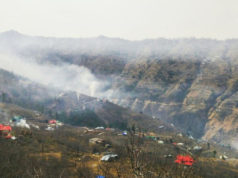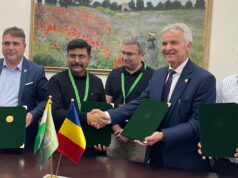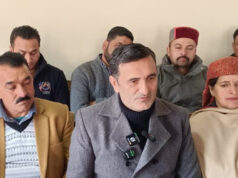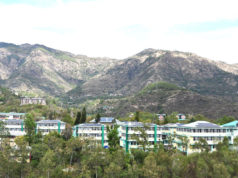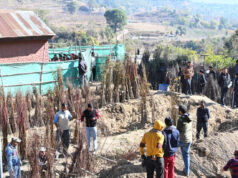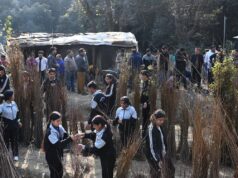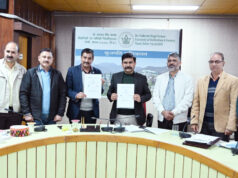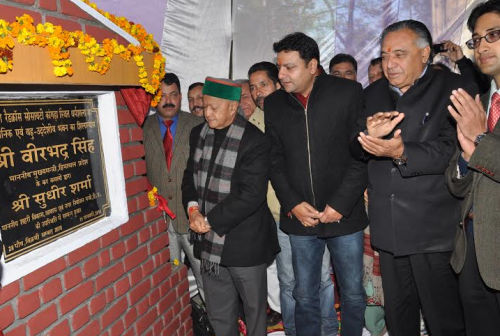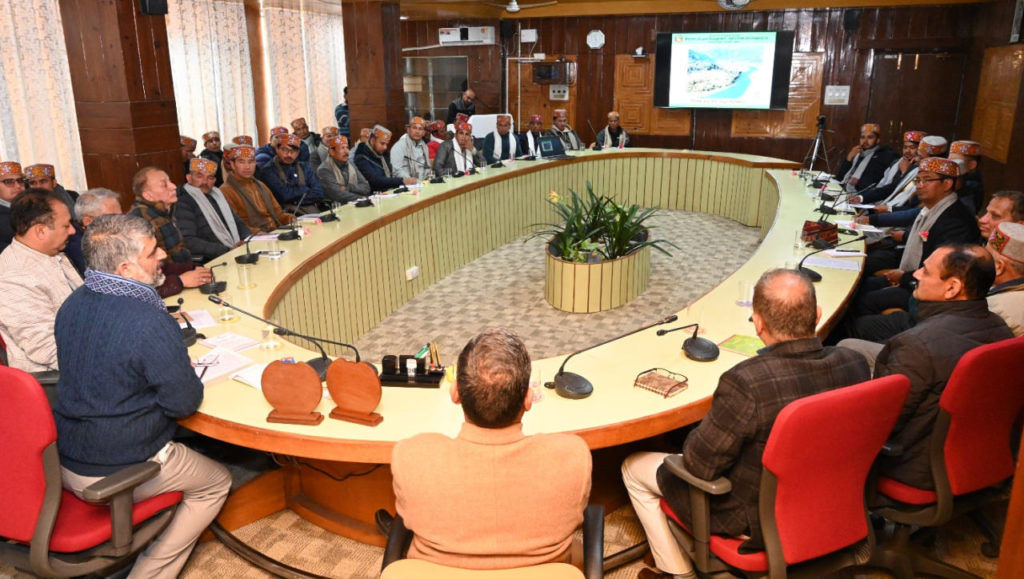
Nauni/Solan – In a collaborative endeavour to foster sustainable agricultural practices and strengthen diplomatic ties, India and Nepal have initiated a joint effort to enhance organic farming in the Karnali Region. A 30-member delegation from Nepal, comprised of farmers and officials from the agriculture department, has embarked on a 10-day training program at the Dr YS Parmar University of Horticulture and Forestry, Nauni.
This training program, named ‘Capacity Building of Public and Private Stakeholders for Organic Highland Apple and Walnut Farming in the Karnali Region of Nepal,’ is a testament to the commitment of both nations towards promoting eco-friendly agriculture. Supported by the Ministry of External Affairs, Northern Division, Nepal Section, New Delhi, and executed in partnership with the Federal and Provincial Agriculture Ministry of Nepal, the initiative aims to equip Nepalese farmers and officials with advanced skills in organic cultivation.
During the inaugural session, Director of Research Dr. Sanjeev Chauhan underscored the historical ties between India and Nepal, emphasizing the cultural, social, and geographical similarities between the hilly regions of Nepal and Himachal Pradesh. He expressed pride in Nauni University being selected by the Indian government to showcase technological expertise and contribute to the skill development of Nepalese farmers and agriculture officials.
Dhan Bahadur Kathayat, Agriculture Extension Officer from the Ministry of Land Management, Agriculture and Cooperative, Government of Karnali Province, Nepal, provided a comprehensive overview of the agricultural landscape in Nepal. Kathayat shared insights into the organic practices in the Karnali region, where agricultural produce is branded as ‘Mulyawaan’ to establish a distinct market presence and secure better prices for farmers.
Dr. Rajesh Kaushal, Joint Director of Research at Nauni University, informed that this marks the inaugural batch of trainees from Nepal, and the collaboration envisions enhancing the skills of approximately 300 participants. The training program will encompass hands-on experience in fruit and vegetable cultivation, with a special focus on apple, walnut, and kiwi. Participants will also delve into organic and natural farming methodologies, along with biocontrol measures.
In his Vote of Thanks, Dr. Amit Vikram, Joint Director of Research, expressed gratitude for the collaborative effort and highlighted the significance of fostering sustainable agricultural practices. This Indo-Nepal initiative not only propels the growth of the Karnali Region but also strengthens the bond between the two nations in the crucial domain of agriculture.
As green diplomacy takes center stage, the India-Nepal joint effort at Nauni University serves as a beacon for future collaborations, setting the stage for a more sustainable and harmonious agricultural future in the region.


